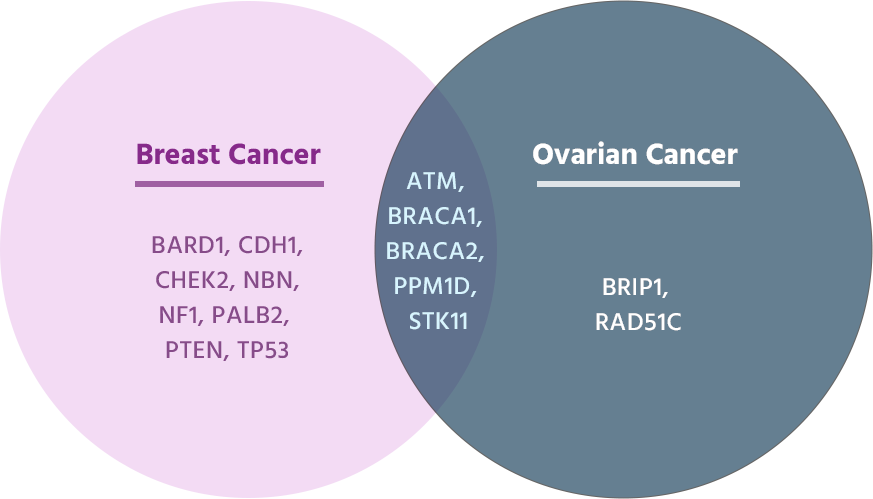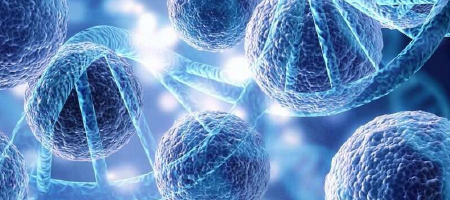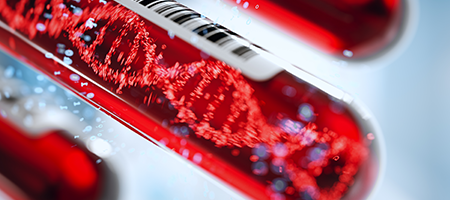Women’s Cancer Panel
Know Your Risk, Empower Yourself with Women’s
Cancer Panel Test!
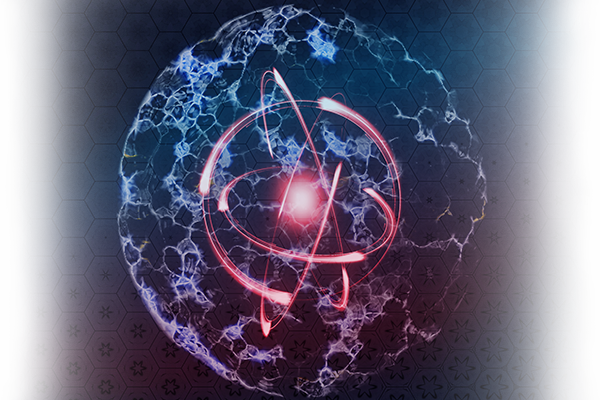
What is BRCA1/2 Gene?
BRCA1 and BRCA2 are the two most common genes associated with hereditary breast and ovarian cancers. Certain variants in these genes can increase the risk of a person developing not only breast and ovarian cancers but also prostate, pancreatic, fallopian tube, peritoneal cancers, and melanoma.
Mutation in BRCA1/2 is more common than what you may think. The frequency of BRCA1/2 mutation found in both men and women is 1 in 300 to 1 in 500.
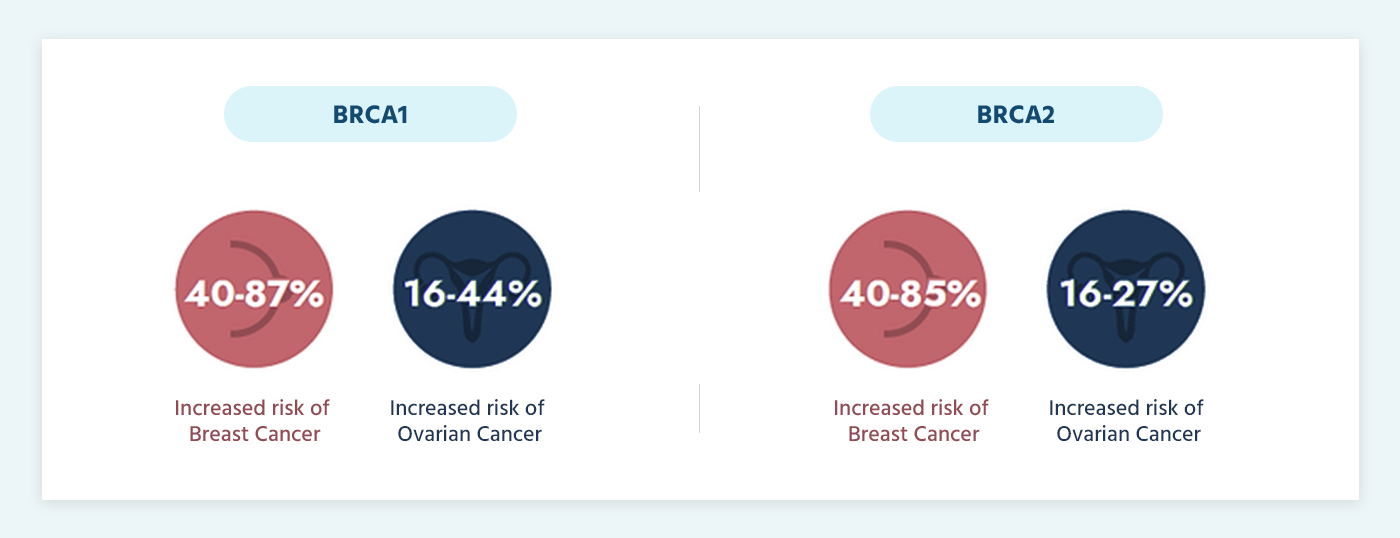
What is Hereditary Cancer?
Women’s Cancer Panel is an NGS-based test that analyses the genetic variants that cause hereditary breast cancer and ovarian cancer. It is estimated approximately 5-10% of all hereditary breast cancer and hereditary ovarian cancer are caused by inherent cancerous factors. Both men and women can inherit a BRCA gene change and pass it on to their children.
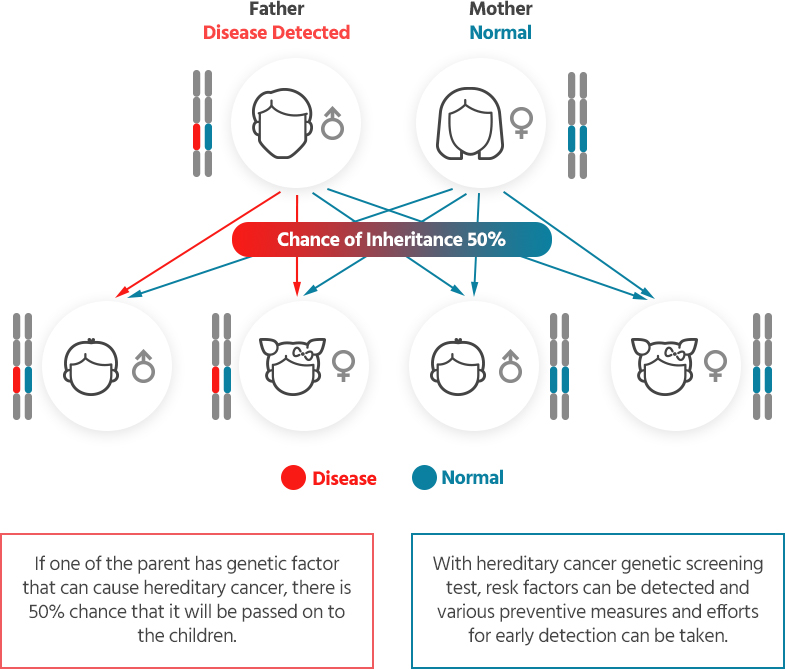
Who should consider Women’s Cancer Panel test?
If You or Your family meets any of the criteria below, you should consider taking the BRCA1/2 test:
What are the BRCA genes?
BRCA1 and BRCA2 are the two genes thought to be associated with hereditary breast cancer and ovarian cancer. The BRCA genes, BRCA1 on chromosome 17q12-21 and BRCA2 on chromosome 13q12-13, have the function of acting as tumor suppressors. They play a crucial role in regulating cell division and preventing the formation of cancerous tumors. When functioning properly, BRCA1 and BRCA2 help maintain the stability of the genome and repair DNA damage. However, mutations in these genes can disrupt their tumor-suppressing abilities, leading to an increased risk of developing breast, ovarian, and other types of cancer.
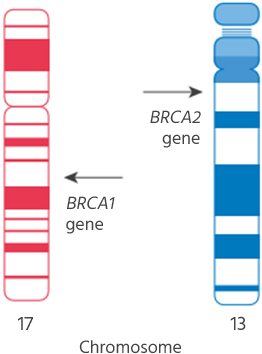
BRCA1 /2 mutation can increase the probability of developing Breast and Ovarian Cancer over one’s lifetime
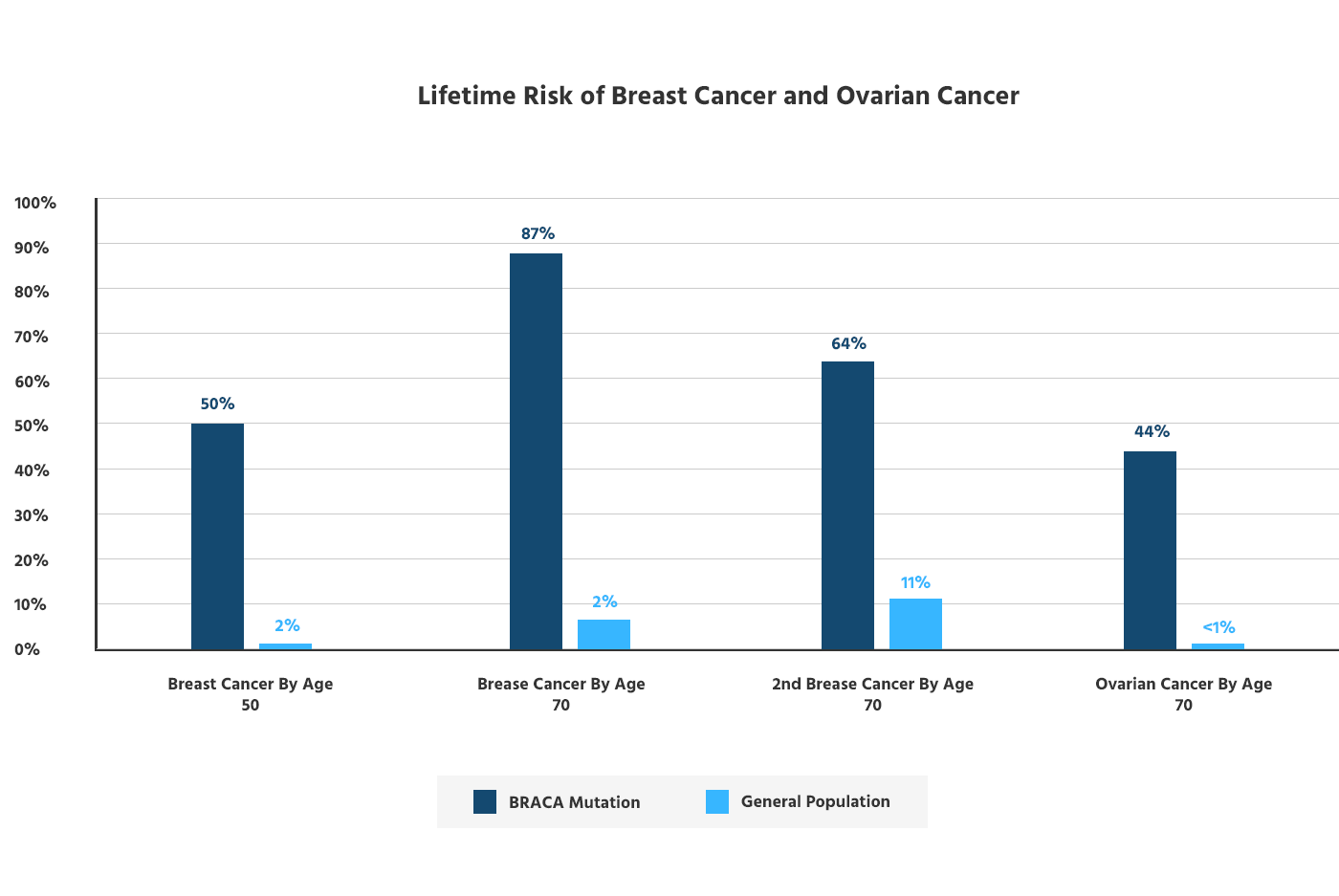
Individual’s lifetime risk of developing cancer is markedly increased if one inherits a harmful variant.
For example, women with a variant in BRCA1 or BRCA2 have been known to have up to an 87% chance of developing breast and/or ovarian cancer by the age of 70-80.
Approximately 50~60% of hereditary breast cancer cases and about 65% of hereditary ovarian cancer cases are caused by mutations in BRCA1 or BRCA2 genes.


